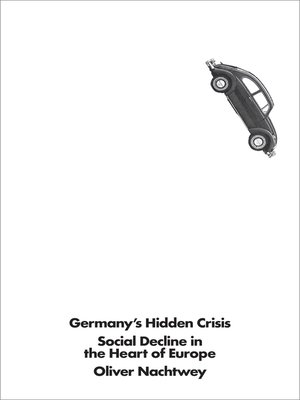
Sign up to save your library
With an OverDrive account, you can save your favorite libraries for at-a-glance information about availability. Find out more about OverDrive accounts.
Find this title in Libby, the library reading app by OverDrive.



Search for a digital library with this title
Title found at these libraries:
| Library Name | Distance |
|---|---|
| Loading... |
One of the German-speaking world's leading young sociologists lays out modern Germany's social and political crisis and its implications for the future of the European hegemon.
Upward social mobility represented a core promise of life under the "old" West German welfare state, in which millions of skilled workers upgraded their VWs to Audis, bought their first homes, and sent their children to university. Not so in today's Federal Republic, however, where the gears of the so-called "elevator society" have long since ground to a halt. In the absence of the social mobility of yesterday, widespread social exhaustion and anxiety have emerged across mainstream society. Oliver Nachtwey analyses the reasons for this social rupture in post-war German society and investigates the conflict potential emerging as a result, concluding that although the country has managed to muddle through the Eurocrisis largely unscathed thus far, simmering tensions beneath the surface nevertheless threaten to undermine the German system's stability in the years to come.
Nachtwey's book was recipient of the Friedrich Ebert Foundation's 2016 Hans-Matth�fer-Preis for Economic Writing.
Upward social mobility represented a core promise of life under the "old" West German welfare state, in which millions of skilled workers upgraded their VWs to Audis, bought their first homes, and sent their children to university. Not so in today's Federal Republic, however, where the gears of the so-called "elevator society" have long since ground to a halt. In the absence of the social mobility of yesterday, widespread social exhaustion and anxiety have emerged across mainstream society. Oliver Nachtwey analyses the reasons for this social rupture in post-war German society and investigates the conflict potential emerging as a result, concluding that although the country has managed to muddle through the Eurocrisis largely unscathed thus far, simmering tensions beneath the surface nevertheless threaten to undermine the German system's stability in the years to come.
Nachtwey's book was recipient of the Friedrich Ebert Foundation's 2016 Hans-Matth�fer-Preis for Economic Writing.







